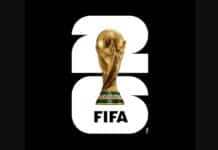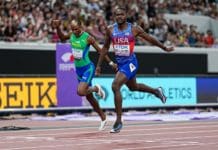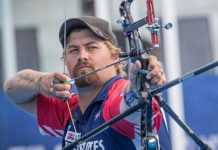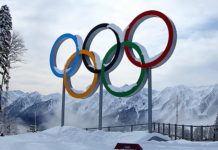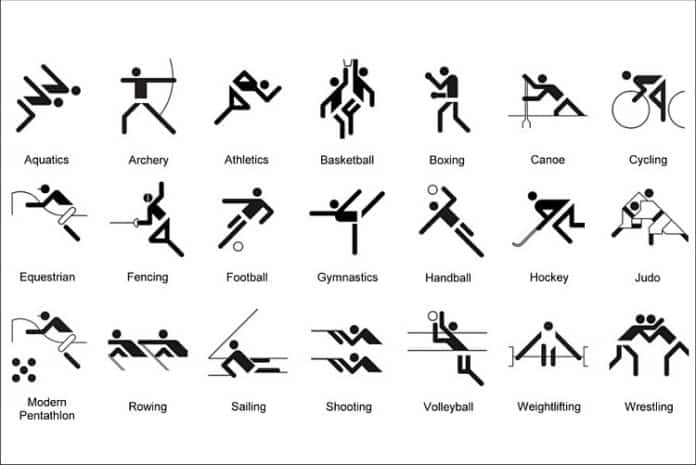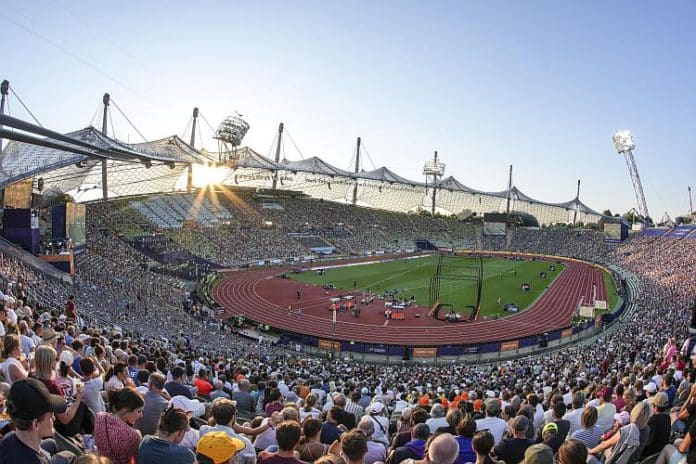★ The Sports Examiner: Surveying, monitoring and explaining the key competitive, economic and political forces shaping elite sport and the Olympic Movement. ★
Thank you to our 23 donors, who have covered 33% of our summer funding goal for operating costs. Can you help? Please donate here. Comments? Click here.
★ To get The Sports Examiner by e-mail: sign up here! ★
≡ THE 5-RING CIRCUS ≡
1. Exactly 50 years ago: the opening of the Munich Games
2. Seven-nation wrestling fest in Israel salutes ‘72 victims
3. FIFA World Cup ‘22 security aid from Pakistan and Turkey
4. Mexico now looking to bid for 2036 Olympic Games
5. Vine takes La Vuelta stage 6; Evenepoel is the new leader
Today is the 50th anniversary of the opening of the Games of the XX Olympiad in Munich, West Germany, an event full of promise that collapsed into tragedy with the murder of 11 Israeli athletes and officials by Palestinian terrorists. Even so, it was a Games that brought design, technology and architecture to the highest levels in support of international sport, and changed how all future major sporting events would be organized and staged. As a Munich memorial, a remarkable, seven-nation wrestling tournament is being held in Israel, including the U.S., with Munich ‘72 team members and Olympic medalists John and Ben Peterson as part of the American delegation. In Qatar, the security for the upcoming FIFA World Cup will be extensive, with support from the Pakistani military, Turkish police and 15,000 surveillance cameras. The Mexican Olympic Committee has signaled its interest in exploring a hosting of the 2036 Olympic Games with the International Olympic Committee. At the Vuelta a Espana cycling extravaganza, Australian Jay Vine took a surprise win in Stage 6, but three-time defending champ Primoz Roglic of Slovenia moved back up, close to the overall lead.
1.
Exactly 50 years ago: the opening of the Munich Games
/Updated/One of the most consequential Olympic Games ever held opened 50 years ago – 26 August 1972 – at the sparkling new Olympiastadion in Munich, then in West Germany, with the flame lit by distance runner Gunther Zahn.
Held 36 years after the infamous, Nazi-dominated 1936 Olympic Games in Berlin and 27 years after the end of World War II, the event was designed to showcase the progress made in West Germany and was promoted as “The Cheerful Games.”
It was enthusiastically received by the West Germans, who supported the Games with ravenous purchases of Olympic coins (profit of 731 million marks, about $223.3 million U.S. at the time, or $1.58 billion in 2022), the Olympic lottery and related games (DM 437 million in sales through 1974, about $133.5 million U.S. at the time, or $946.2 million in 2022) and even postage stamps. All told, the Munich organizers realized DM 1.28 billion in revenue (about $391 million U.S. at the time, or $2.77 billion today), 64% of the total budget of the Games, actually reducing the public funding of the event by the federal, state and local governments!
(Thanks to Smith College economics professor Andrew Zimbalist for pointing out our mis-conversions to U.S. dollars in our original post.)
A heavy promotional campaign emphasized the “new” Munich, using a pastel color scheme and a brilliant set of new venues, especially the futuristic-looking Olympiapark, with its iconic acrylic rooflines. The clean, precise lines of the logo and pictograms by designer Otl Aicher were hailed as a new standard in design:
“[Aicher] drew an extensive series of pictograms on a modular grid divided by horizontal, vertical and diagonal lines. A very good example of German cold geometry that emerged as a complete standardised visual language due to all of his drawings being designed under strict mathematical control. Aicher’s pictograms were an unavoidable milestone in the design of pictographic systems.”
Munich also introduced the first summer Olympic Games mascot, the multi-colored Waldi, the dachshund.
Behind the scenes, new technologies were at work, especially in the computerized timing and scoring systems designed by Siemens and Junghans. This was to be the most modern, technically perfect Games ever.
It started well, with a then-record 121 nations attending and 7,114 athletes. Russian teenager Olga Korbut debuted a fascinating, new, technical approach to gymnastics that earned her three gold medals. American Mark Spitz set a new standard for excellence in swimming, winning an unprecedented seven gold medals, winning the 100 and 200 m Freestyles and Butterflys and with legs on three winning U.S. relay teams, all in world-record times. Finland’s Lasse Viren fell during the final of the men’s 10,000 m on the track, but got up and not only won, but in a world record of 27:38.4. He later won the 5,000 m as well.
But on 5 September – 11 days into the Games – the happiness ended with the capture and murder of 11 Israeli athletes and officials by Palestinian terrorists. A day of mourning was held on 6 September, with International Olympic Committee President Avery Brundage (USA) telling an audience of 80,000 in the Olympiastadion, in pertinent part:
“We have only the strength of a great ideal. I am sure the public will agree that we cannot allow a handful of terrorists to destroy this nucleus of international cooperation and goodwill we have in the Olympic Movement.
“The Games must go on and we must continue our efforts to keep them clear, pure and honest and try to extend sportsmanship of the athletic field to other areas. We declare today a day of mourning and will continue all the events one day later than scheduled.”
The next day, Vince Matthews and Wayne Collett of the U.S. went 1-2 in the men’s 400 m and staged a passive protest on the awards podium by standing casually while the American anthem was played. They were disqualified from further participation in the Games (specifically the 4×400 m relay). On 10 September, American Frank Shorter – born in Munich – won the marathon in 2:12:20, one of the catalytic events of the “running boom” of the 1970s.
Munich was a success on many levels, but will always be remembered for its failure in security and the “Munich Massacre.” Security at the Games, and all other major events, has not been the same since.
2.
Seven-nation wrestling fest in Israel salutes ‘72 victims
A unique remembrance of the Munich Massacre is concluding in Be’er Sheva, Israel, with seven nations competing in the “Slavin, Halfen, Weinberg & Gottfreund Memorial.”
Of the 11 victims in Munich, four were wrestling-related, including athletes Eliezer Halfin and Mark Slavin, referee Yossef Gutfreund and coach Moshe Weinberg; weightlifting also had four victims, with three athletes and an official killed.
The 2022 tournament features athletes from Israel, the United States, Morocco, Germany, Greece, Switzerland and Tajikistan, in Freestyle and Greco-Roman divisions. A training camp program for youth wrestlers, including some Americans, is also included.
Two members of the American team from 1972 are part of the delegation, brothers John and Ben Peterson. Ben won the Olympic Freestyle gold at 90 kg and John was the 82 kg silver medalist. Also of note is the presence of the Moroccan team; Jake Kornblatt (USA) of the Israeli Wrestling Federation explained:
“A very significant part of this event is that it follows the Abraham Accords, in which Israel and Morocco signed a peace agreement. The delegation of 17 Moroccans have arrived in Israel for a week and the Moroccan Wrestling Federation President will be signing an agreement of cooperation with the President of the Israeli Wrestling Federation in the presence of the Chairperson of the Israeli Olympic Committee and the Moroccan Ambassador to Israel.”
The unofficial title of the competition is “Wrestle for Peace.”
3.
FIFA World Cup ‘22 security aid from Pakistan and Turkey
An agreement in principle between FIFA World Cup host Qatar and Pakistan will see Pakistani troops on the ground to help provide security during the event that begins on 20 November.
Reuters reported that the Pakistan government has approved the plan, ahead of a visit during the week by Prime Minister Shehbaz Sharif. A statement explained, “The two sides will discuss bilateral relations between the two countries, especially to move forward cooperation in energy, trade, and investment opportunities.”
No further details about the specific number of troops or other aid to be provided for the World Cup were disclosed. Pakistan, suffering through continuing financial crises, is to receive $2 billion in aid from Qatar, along with $1 billion in financing from both Saudi Arabia and the UAE.
The security arrangements for the World Cup include a heavy use of security cameras and facial recognition. An Agence France Presse story explained that the security program will include 3,000 Turkish police and the use of 15,000 security cameras across the eight stadiums and drones on the surrounding streets, trains and buses to gauge crowd control requirements. The camera systems have been equipped with facial recognition technology.
According to Biometricupdate.com, “Access to events will be controlled through the Hayya Card, a digital identity document that must be applied for by submitting passport scan, along with a high-quality facial image.” China’s Huawei was reported as the “system integrator for the facial recognition capability” and is providing network infrastructure for the organizers.
The interconnections between the stadia will allow a simultaneous announcement to be made in all eight at the same time.
Said Qatar 22 Chief Technology Officer Niyas Abdulrahiman (QAT), “What you see here is a new standard, a new trend in venue operations, this is our contribution from Qatar to the world of sport. What you see here is the future of stadium operations.”
Quite possible with eight stadia within 43 miles, but harder for larger, multi-sport events with more distant venues.
4.
Mexico now looking to bid for 2036 Olympic Games
ESPN Mexico reported that the Comite Olimpico Mexicano (COM) has made contact with the International Olympic Committee to open a dialogue about a second Olympic Games in Mexico in 2036.
The COM President, Mari Jose Alcala – a four-time Olympian in diving – was on the video call on Tuesday (23rd) to begin the discussion, ostensibly with the IOC’s Future Hosts Commission. The 1968 Olympic Games was held in Mexico City, following unsuccessful bids for the 1956 and 1960 Games.
However, a 2036 bid could be made with Guadalajara or Monterrey as the lead city, no doubt with events spread out to maximize the use of existing sites, as per the IOC’s desire. Mexico hosted the 1955 and 1975 Pan American Games in Mexico City and the 2011 edition in Guadalajara, and the 1986 FIFA World Cup (in 12 stadia in seven states). In 2026, FIFA World Cup matches will be played in Mexico City, Monterrey and Guadalajara.
There are plenty of other contenders for 2036, and the decision is not expected to be made until after current IOC President Thomas Bach (GER) leaves office in 2025.
5.
Vine takes La Vuelta stage 6; Evenepoel is the new leader
The first major climbing stage of the 77th Vuelta a Espana finished with a 12.6 km march up the Pico Jano that gained more than 800 m in elevation at the end of Thursday’s 181.2 km stage. At the end, it was Australia’s Jay Vine, 26, with his first-ever win on the UCI World Tour.
Ukraine’s Mark Padun was the leader at the start of the final climb, but he was overhauled by Vine and then Belgium’s Remco Evenepoel and Spain’s Enric Mas, who finished 1-2-3 in 4:38:00, 4:38:15 and 4:38:16.
Padun faded to 20th, but three-time winner Primoz Roglic (SLO) led the main contender pack in fifth place, just 1:37 back. While Evenepoel has the overall lead, Roglic chopped three minutes off of his deficit at the start of the day and is only 1:01 back in fourth. France’s Rudy Molard, the leader coming in, is now second (+0:21) and Mas is third (0:28).
A hilly stage on Friday will be followed by mountain stages on Saturday and Sunday in northwest Spain, both with uphill finishes.
≡ PANORAMA ≡
● Olympic Winter Games 2026: Milan Cortina ● The Italian newspaper Il Sole 24 Ore reports that UEFA director Michele Uva is the leading candidate to become the head of the Milan Cortina organizing committee, asked to speed up the recruitment of domestic sponsors and the organization of the event.
The Italian government has seen the costs for its contribution of the Games rise substantially, even to the level of providing a substantial loan to the organizers to help with cash flow. A new chief executive is desired; others consistently mentioned are Paolo Scaroni, the chair of the AC Milan football club and banking executive Alessandro Profumo, the current head of Leonardo S.p.A.
● Olympic Winter Games 2030: Vancouver ● The attitude of the British Columbia provincial government toward a possible Vancouver bid for 2030 remains uncertain.
Questions raised by the province were expected to be answered in a 15 August submittal from the Canadian Olympic Committee and the four First Nations who are leading the bid effort, but some information was not available. Reports indicated that the British Columbia government will not give or refuse approval until the fall or early winter. The main questions: cost, financing, governance and who is ultimately responsible in case of a deficit.
The Canadian national government’s view towards the bid is said to be dependent on the provincial decision. In the meantime, the IOC expects to decide on a preferred candidate for 2030 by December with Sapporo and Salt Lake City considerably in the lead.
● Athletics ● Sweden’s superstar vaulter, Mondo Duplantis, triumphed in Lausanne in a city-center pole vault on Thursday ahead of the main session of the Athletissima Diamond League meet on Friday (on NBC’s Peacock service from 2-4 p.m. Eastern time).
He continued his undefeated season by winning his 17th competition (and 20th in a row over two seasons) at 6.10 m (20-0) on his third attempt. He was the only one to clear 5.90 m (19-4 1/4) and 6.00 m (19-8 1/4), with American Chris Nilsen second at 5.80 m (19-0 1/4).
¶
Russian national long jump champion Yelena Sokolova, the London 2012 silver medalist, told the Russian news agency TASS that the All-Russian Athletics Federation (ARAF) is not the only one to blame for its continuous suspension for doping and governance issues since 2015:
“I won’t blame the ARAF for all the troubles. The international federation [World Athletics] is absolutely to blame. I don’t understand why there are no questions for them, but they blame the ARAF. I agree that and we must work together to improve, and not blame each other for everything.”
Russian Minister of Sport Oleg Matytsin echoed the sentiment, but in a different way, on Thursday in Kazan, with the multi-sport Spartakiad is continuing:
“We are not isolating ourselves, all questions are for the opposite side. We are ready for an open dialogue at any time, and Russian athletes are ready to compete and please our fans and the entire world community with their performances at any time.”
No mention of the “special military operation” in Ukraine, of course.
World women’s vault leader Anzhelika Sidorova, 31, the 2019 World Champion, told reporters that she is unsure about her future in the sport given the continuing suspension of the Russian federation:
“I’m going on vacation, and then I don’t know what will happen. … How can I be satisfied with the season if it was not?”
● Bobsled ● Canada’s Justin Kripps, the PyeongChang 2018 co-Olympic gold medalist in the Two-Man event, announced his retirement at age 35. He also piloted the Beijing 2022 bronze medalists in the Four-Man sled and won five World Championships medals (0-2-3) from 2012-19.
Originally a sprinter at Simon Fraser University, he saw bobsledding as a mix of track and auto racing and was a consistently dangerous performer. He won the 2017-18 seasonal World Cup title in the Two-Man division. He wrote on Instagram:
“16 years of living my dream, wearing the maple leaf proudly while representing this great country all over the world. It’s been my greatest challenge and the most rewarding adventure of my life. I pushed myself further than I thought possible and learned who I was in the process. I wouldn’t change even the worst day or the hardest struggle I had because my greatest moments seemed to arrive right after the most difficult times.”
¶
You can receive our exclusive TSX Report by e-mail by clicking here. You can also refer a friend by clicking here, and can donate here to keep this site going.
For our updated, 620-event International Sports Calendar for 2022 and beyond, by date and by sport, click here!










